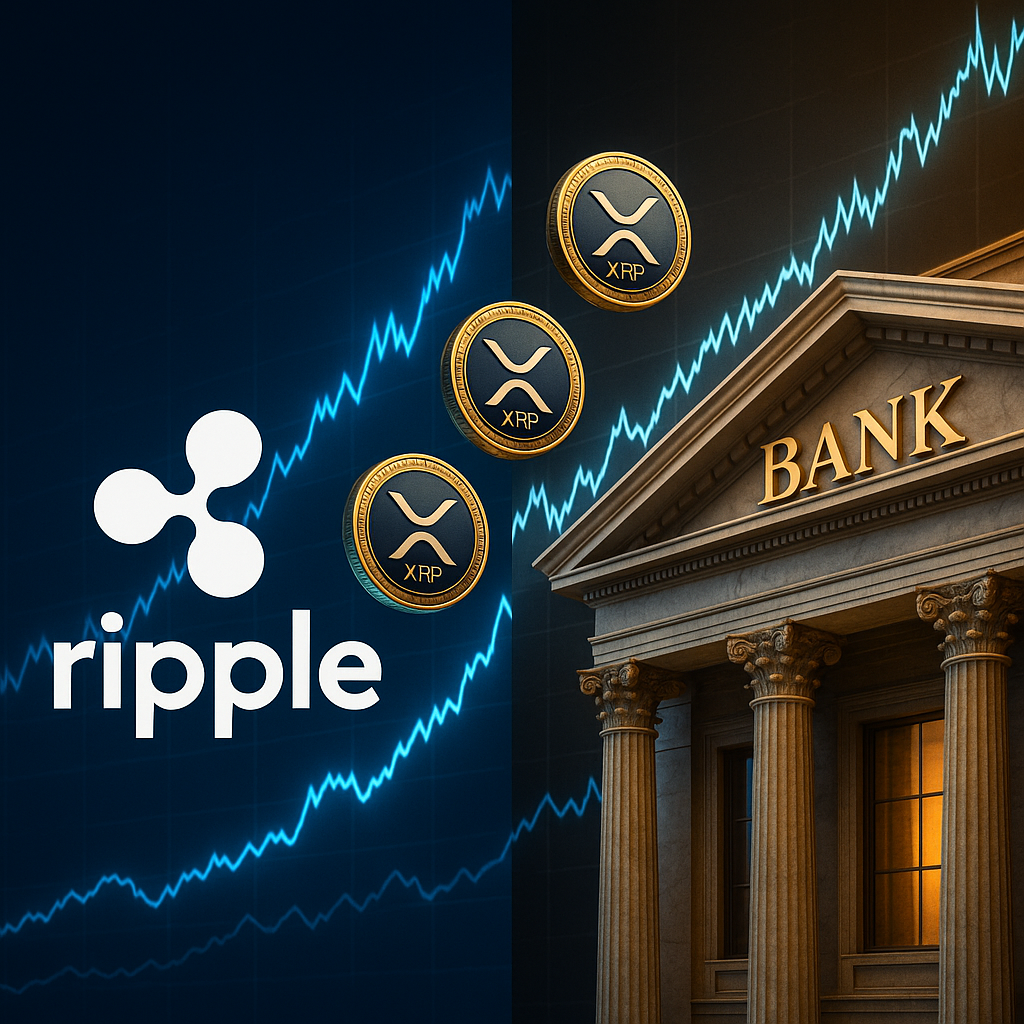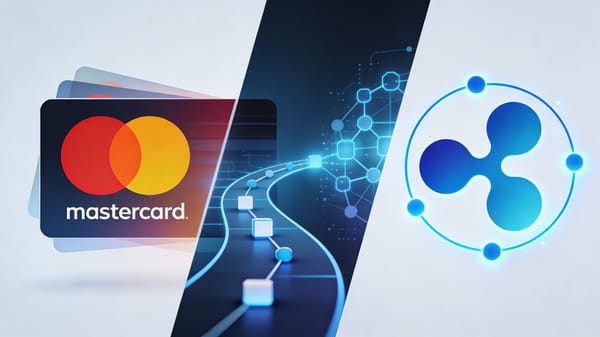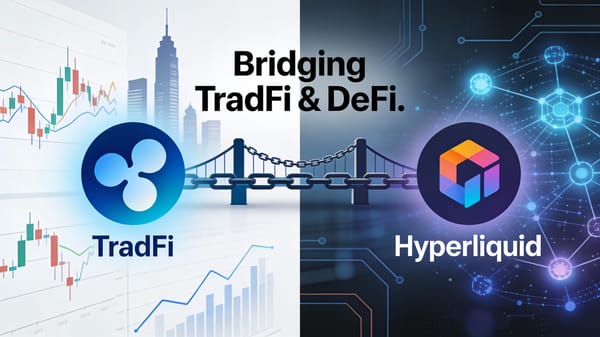What If Ripple Stops Selling XRP? The Banking Scenario Nobody's Pricing In
Could Ripple's banking license lead to a permanent halt of XRP escrow sales? Industry speculation suggests this 'black swan' scenario nobody's pricing in could create massive supply shock, forcing institutions to buy from retail markets instead of Ripple directly.

Market Speculation Heats Up as Ripple's Banking Application Advances
A provocative theory is gaining traction in crypto circles: What happens if Ripple secures its U.S. banking license and decides to permanently halt sales from its massive XRP escrow? Ripple applied for a national bank charter from the Office of the Comptroller of the Currency (OCC) on July 2, 2025, seeking to operate as a regulated financial institution offering services like custody, tokenized assets, and cross-border payments.
This speculation emerged from commentary by Sal Gilbertie, CEO of Teucrium Trading, who suggested that "nobody is thinking about the scenario where Ripple doesn't ever sell the XRP Escrow...and announces it!" according to discussions circulating on social media. The theory has captured attention because it represents a potential "black swan" event that could dramatically reshape XRP's supply dynamics.
Nobody is thinking about the scenario where Ripple doesn't ever sell the XRP Escrow....and announces it! pic.twitter.com/itiJfkrjCy
— Digital Asset Investor (@digitalassetbuy) August 16, 2025
Understanding Ripple's Current Escrow System
Ripple currently holds over 35.6 billion XRP in escrow accounts, with the company releasing 1 billion XRP tokens on the first day of each month through an automated mechanism. However, the company typically only sells 20-25% of released tokens to fund operations and partnerships, while re-locking approximately 700-750 million XRP back into new escrow contracts.
According to recent data from SBI Holdings, Ripple's partner and largest external shareholder, approximately 37.43 billion XRP remains locked in escrow as of February 2025, while Ripple directly holds about 4.79 billion XRP. This controlled release system was designed to prevent market flooding and provide predictable supply management.
The Banking License Connection
Ripple's application for a national trust bank charter would allow the company to operate under federal oversight through the OCC, potentially offering services including stablecoin management, custody operations, and direct access to Federal Reserve payment infrastructure. The proposed "Ripple National Trust Bank" would be headquartered in New York and operate as a wholly-owned subsidiary of Ripple Labs, with a focus on B2B banking and infrastructure.
If approved, the charter could grant Ripple unprecedented institutional credibility, potentially attracting pension funds, hedge funds, and corporations seeking stable, regulated crypto exposure. The application timeline suggests approval could come by late 2025 or early 2026.
XRP Supply Shock Theory Explained
The speculation centers on several potential scenarios once Ripple achieves banking status:
Regulatory Compliance: As a licensed bank, Ripple might face stricter regulations on token sales to avoid securities issues, potentially requiring them to halt regular escrow sales entirely.
Strategic Asset Holding: Banking status could enable Ripple to hold XRP as a balance sheet asset for liquidity in payment networks, similar to how traditional banks hold reserves.
Government Integration: Some community members speculate the escrow could be reserved for institutional or government use, forcing market participants to purchase XRP from exchanges where retail holders set prices.
Market Implications and Price Impact
Teucrium's Sal Gilbertie has stated that "Ripple will move trillions and tokenize the entire financial system," suggesting ambitious plans beyond current payment use cases. If Ripple were to announce a permanent halt to escrow sales, several market dynamics could emerge:
Supply Constraints: Removing Ripple's monthly sales pressure (currently 200-300 million XRP entering circulation monthly) could create immediate supply scarcity.
Institutional Demand: Gilbertie believes Ripple could eventually replace the SWIFT payment system, which processes trillions in daily transactions. Banking legitimacy could accelerate institutional adoption.
Price Discovery: Without Ripple's controlled selling, XRP's price would depend entirely on market forces between retail holders and institutional buyers.
Current Market Status and Challenges
Recent escrow releases have shown limited price impact due to Ripple's controlled re-locking strategy, with 700-750 million tokens typically being re-locked immediately. XRP currently trades around $3.17, with analysts suggesting potential targets of $6-$10 if key resistance levels break.
However, the Independent Community Bankers of America (ICBA) has opposed Ripple's banking application, arguing it would "undermine the stability of the financial system by allowing a non-traditional institution to offer deposit-like services without adequate regulatory oversight".
Reality Check: Speculation vs. Probability
While this scenario captures imagination in XRP communities, several factors suggest caution:
Business Model: Ripple's operations still depend partially on XRP sales for funding. A complete halt might require alternative revenue sources to be fully established.
Regulatory Requirements: Banking regulators might actually require greater transparency and controlled distribution rather than complete sales cessation.
Market Stability: Abrupt changes to established supply patterns could trigger regulatory scrutiny or market instability.
A Waiting Game
The "no more escrow sales" scenario remains speculative, but it highlights how regulatory developments could reshape cryptocurrency supply dynamics. Ripple's banking application represents a significant step toward mainstream financial integration, and the company's treatment of its XRP holdings will likely evolve with its regulatory status.
Whether Ripple announces a permanent halt to escrow sales or maintains its current controlled release system, the banking license decision will significantly impact XRP's institutional adoption prospects. For now, investors are watching both the OCC's approval timeline and Ripple's continued escrow management for clues about the token's future trajectory.
Key Takeaway: While dramatic supply changes capture attention, Ripple's path to banking legitimacy and institutional adoption may prove more significant for long-term value than any single announcement about escrow management.
Sources
- Ripple Applies for Federal Bank Charter - CoinDesk
- Ripple OCC Banking License Application Details - CryptoRank
- XRP Escrow Release Timing Clarification - AInvest
- Teucrium CEO on XRP Utility - Finance Magnates
DISCLAIMER: This newsletter is for informational purposes only and does not constitute investment advice or a recommendation to buy, sell, or hold any securities. Investments in cryptocurrencies or other financial assets carry significant risks, including the potential for total loss, extreme volatility, and regulatory uncertainty. Past performance is not indicative of future results. Always consult a qualified financial professional and conduct thorough research before making any investment decisions.



